#'i love him'
Explore tagged Tumblr posts
Text








Matt Damon's interview w/ The Advocate (18 January 2000)
[During promotion for The Talented Mr. Ripley, Matt Damon gives an interview to LGBT magazine The Advocate. He discusses his approach to playing Tom Ripley, same-sex relationships, and the scrutiny around his friendship with Ben Affleck. I first came across excerpts from this fascinating interview when browsing the Damon Affleck Slash Archive using the Internet Archive's WayBack Machine, but my gratitude goes to @kampedupkinks-blog for pointing me toward the full issue. Full transcription under the cut.]
Going to the Matt
Gay people, characters, and subjects are nothing new to Oscar winner Matt Damon. Here's his whole unexpected attitude on it all.
By Brendan Lemon
As the title character in the luxurious, homoerotic new movie The Talented Mr. Ripley, Matt Damon is obsessed with trying on a rich friend's clothing, looking for the right well-tailored suit to reflect his evolving view of himself. Ever since the Boston buddy picture Good Will Hunting won him a screen-writing Oscar and established him as a movie star two years ago, the actor has been redefining his own identity too.
Measuring this metamorphosis is a challenge, partly because the 29-year-old actor is still pondering just how to use the public voice that his fame has provided and partly because his celebrity's outward clues can be a little misleading. For example, he may have just bought a gargantuan—7,000 square feet—apartment in downtown Manhattan, but you sense he wants to make it a home rather than a showplace. And he may go out with another movie star (Winona Ryder), but, refreshingly, the two so rarely make the scene that they seem the furthest thing from a young Hollywood power couple.
The performer talked about both his life and gay-related issues raised by his new movie during a conversation one recent afternoon not far from his New York City home, a discussion in which he displayed his Harvard-caliber intelligence (he dropped out of that university to act, not because his grades weren't good), an attractive blend of sensitivity and seriousness, and the kind of genuine politeness that makes you want to meet, and thank, his mother.
While Damon upbringing has made him highly skeptical of celebrity, he is not about to turn the spotlight away from himself. "Matt is not the sort of actor who refuses to talk about his movies because he doesn't want to talk about his life," said Anthony Minghella, the director and screenwriter of The Talented Mr. Ripley. "In fact, one of the things that distinguishes him as both an actor and a person is that he doesn't duck the moment." Case in point: In the new movie's hottest scene, Damon's Tom Ripley looks lustfully at his friend Dickie Greenleaf (Jude Law) as he emerges from the bath. "Matt didn't ever try to wink at the audience while we were filming that, to distinguish himself from the character," Minghella said. To which Damon replies: "That would have been ridiculous. Ripley at that point was so bubbling over with desire."
Damon sees the homoeroticism of his latest character as an acting assignment, but his matter-of-fact approach to it has roots in his own life. "I grew up in a community house in Cambridge, Mass.," Damon said, "and a number of people who lived there were gay." Respect for difference wasn't the house's only core value; so was hard work a quality for which Damon is still known. "Matt won't always admit the rigor with which he approaches his roles," Minghella said, mentioning that for Ripley the actor learned to play the piano. "I sort of learned," Damon clarified, "just like I sort of learned to sing." The modesty is misplaced: In the movie the actor's wonderful rendition of "My Funny Valentine," aimed at an oblivious, sax-playing Greenleaf, stands as a clear, lonely lament recognizable to anyone—straight or gay—who's known the pain of unrequited love.
Don't expect Damon, however, to star any time soon in a revival of Babes in Arms, and certainly not with lifelong buddy Ben Affleck. The two remain call-each-other-at-all-hours close and make periodic noises about finishing that next screenplay, but any discussion about their friendship strikes Affleck, according to Damon, as "weak." Their bond, of course, still causes some people to regard them as more than pals. In this interview Damon addresses the subject head-on, while admitting that "the speculation isn't quite as much fun as it used to be."
But Damon, whose habit of answering virtually any question directly is reminiscent of Tom Hanks, with whom he had a memorable battle-jitters scene in Saving Private Ryan, mostly wanted to talk about sexuality because of his participation in The Talented Mr. Ripley. The movie which Minghella adapted from a 1955 novel by Patricia Highsmith (the first in a series), tells the story of the aforementioned Ripley and Greenleaf, two young Americans at play in late-1950s Italy. The secretive, hollowed-out Ripley is a consummate social strive. Unlike the wealthy, golden-haired Greenleaf, Ripley is to the manner—but not to the manor—born. In his quest for class he aspires to absorb everything about his friend: not just his clothing and his possessions but his pampered way of life.
But Greenleaf, involved with another young American, Marge Sherwood, treats Ripley disposably. Amused by Ripley's conversational talents and touched by his love of music, Greenleaf takes him along on high-spirited jaunts up and down the Italian peninsula, a series of sunlit, mostly seaside locations that the film caught sumptuously on location. But when Greenleaf tires of his visitor and attempts to toss him off, Ripley reacts tragically. "Maybe no one who sees the movie will agree with me," Damon said, "but as the one who played the character, I thought, This is so unfair. This person deserved better. He was so close to knowing happiness with another man."
In the hands of Highsmith, a lesbian expatriate who like many American writers—Vidal, Baldwin, Williams—came to Europe partly to escape the stifling sexual orthodoxy of postwar America, Ripley is a figure of great fascination but little empathy. Following him as he assumes Greenleaf's personality and attempts to elude his pursuers after the murder is a riveting yet slightly chilly exercise. "We wanted to make Ripley more human than Highsmith did," Damon said. To that end, Minghella pointed out, the character does not, as in the novel, plan to kill Greenleaf but, rather, lashes out at him when he confesses his love and is rejected. In another adjustment, Minghella transformed Peter Smith-Kingsley, one of the book's minor figures, into a gay man offering Ripley love and acceptance.
By fleshing out the book's homoerotic subtext, Minghella has made the story more resonant for a contemporary audience. He has also opened himself to the charge that he has made a movie about a "gay serial killer." "I think that that is a very reductive characterization," Damon said, "but I would urge people to see the movie and make up their own minds about its sex and psychology." To which one might add: Whether you like the film or not and whether or not you find it upsetting, Ripley stands as a sophisticated essay about an identity in formation—economically, psychologically, sexually.
For the movie's Forsterian world of prim Anglo-Saxons smitten with Italian sensuality, Damon's Ripley and Law's Greenleaf were joined by Gwyneth Paltrow as Sherwood and Cate Blanchett as a new character named Meredith Logue. All of them except Damon play roles in keeping with their images. After all, Damon has built his career playing mostly recognizably good guys. "Is my list of credits that heroic?" the actor asks a little disingenuously. To which one answers: Look at your resumé, Matt. Damon's gallery of Hollywood classic male archetypes includes the soldier (Courage Under Fire, Saving Private Ryan), the cowboy (Geronimo, the upcoming All the Pretty Horses), the athlete (School Ties, the upcoming golf fable The Legend of Bagger Vance), and the lawyer on the side of Southern right (The Rainmaker).
As part of his search for new suits, however, Damon has been willing to try some unexpected material. He is the frisky fallen angel Loki in the controversial movie Dogma, and he and Affleck are producing a TV version of The People's History of the United States, an iconoclast work by the scholar Howard Zinn. But it is as Ripley that Damon has most fully revealed in the unexpected.
Some people think it was brave of you, after just having won an Oscar for Good Will Hunting and becoming Hollywood's newly minted leading man, to play a role as upsetting and vulnerable as Tom Ripley.
I don't think playing Ripley was brave of me. I'm an actor who read a great script and who was extremely lucky to have been asked to do the part.
Ripley, however, is a very sad soul, and you appear to be anything but. What personal experiences did you draw on to convey that part of him?
Like everybody, I'm lonely to some extent. Like everybody, I live in fear of not being loved and not having love returned. And I think everybody has a Dickie Greenleaf in his life: someone who is extraordinarily charismatic but who can go away.
Ripley covets everything about Dickie's identity—his way of life, the issue of class, in both the sense of one's social stratum and of one's taste, is, along with sexuality, perhaps the driving issue of the movie. Did you relate to Ripley's cravings for class?
Only to a certain extent. When I was growing up in Cambridge, Mass., people took a certain amount of pride in not being Harvard people. We always thought we were cooler than they were. In terms of relating to Ripley's outsider quality, I have the standard stories that you probably have—of not being invited to the dance and picked for the team. The challenge of Ripley was making the longing to be chosen consistent in my character, despite the horrible things he's doing. Because if you don't stay in sympathy with Ripley—if you go into the theater thinking he's a "gay serial killer" and not a tormented, sensitive human being—then you may as well stay home. You're only going to have your preconceptions confirmed.
What were the key scenes for you to convey Ripley's sexuality?
The chess scene, where Dickie is naked and in the bathtub and Ripley is clothed and out of it. Also the scene where Ripley says he'd take a bullet for Dickie and the scene in the jazz club where, under the cover of music, I shout to him, "It's one big love affair." That's sort of my coming-out in the movie.
The bathtub scene is homoerotic yet slightly enigmatic. Ripley wants to get in the bath, but when he asks and Dickie says no, Ripley has to damp down his desires. Even though, moments later, when Dickie is toweling off, Ripley looks at his ass with a longing that suggests he's just seen the face of God.
When Ripley first got to Italy, if Dickie had taken off his clothes and said, "OK, strip down," Ripley would have just recoiled. Our idea was that he was a virgin. I say that because he's probably never been naked in front of somebody. Remember the first time you were naked in front of somebody? It's terrifying, but you get over it because, hopefully, you have somebody who says, "You're beautiful." But Ripley's never had that. He hasn't crossed the hurdle of deep self-loathing.
But when, at the movie's end, Peter Smith-Kingsley, a sweet, sensitive musician whom Ripley meets...
The ultimate man!
...asks Ripley to take his clothes off and become intimate, he's still struggling with his physical self-image. He is still deeply ashamed of himself, both because of his demonstrated capacity for violence and because of his inability to be intimate—with anyone, male or female. It is this abiding moral sense that makes him human rather than, to be reductive about it, a serial killer. He takes no pleasure in his transgressions.
Right, which is why the ending is so devastating. Ripley still believes that if he showed his authentic nature, he'd be cast aside.
Which is a version of what everyone fears and what some gay people, sadly, fear their whole lives: that as soon as people see our true, hidden natures they will reject us.
So rather than expose himself further to the man who truly loves him, Ripley "rejects" Peter in the most extreme way possible.
Ripley's relationship with Peter is potentially an adult, homosexual one, whereas the one with Dickie is more adolescent and amicable. The movie reminds us that there is a vulnerability involved in same-sex friendships that is just as acute as those in full-fledged gay love affairs.
Same-sex relationships with anyone when you are young entail extreme vulnerability. The first experience most of us have of devastating personal rejection is not with someone we want to date but with someone we want to befriend.
When you were that tender age, was your desire to be an actor looked down upon by your buddies?
No.
You were extremely lucky in that, you know.
I know. A number of people have come up to me and said that because of their interest in theater they were referred to as "drama fags." That wasn't the case in our school. I was supported by my parents and friends in the desire to be creative.
Who were some of the early gay influences on you?
I grew up in a community house, inhabited by my mother and brother and many other adults and children, and a number of people who lived there were gay. My theater teacher was not gay, but I probably had more gay than straight teachers in high school. So being gay, luckily, was not something that I was "introduced" to at some age. It was more that I was introduced to the prejudice against it. I had the reverse of a typical growing-up in that regard.
Your lifelong friendship with Ben Affleck had been endlessly scrutinized since your success with Good Will Hunting. Given how you grew up, was it odd to be tagged as lovers and have that speculation be viewed by some people as a negative thing?
The gay assumption seemed silly to me, a real waste of attention. But I understand that the idea of something hidden fascinates people.
At first, your friendship with Ben was a good marketing ploy. But now that your careers are established, has that strategy gotten tired?
Absolutely. You reach a point where it's your friendship and no one else's.
But you're smart enough to know that the media isn't likely to leave your relationships alone—whether it's you and Ben or you and Winona Ryder, your current girlfriend. You're also smart enough to know that the public has been burned enough times by the media dissembling about homosexuality to be more skeptical than they used to be about the subject. And thus a few people are going to read this interview and still want—still need—to believe that the couple is not you and Winona but you and Ben.
But that's because sex sells magazines and because people are now conditioned to believe that anyone they see on the cover is having sex with everyone in their lives. Given the shallow nature of the packaging and the salesmanship in our culture, it's no surprise that people are lulled into these assumptions.
The unvaryingly sexy packaging is a distraction from ever having to think about the real issues.
Of course.
To go back to you and Ben, would it be so terrible if you were a couple?
The question of whether Ben and I are gay is so awkward in a lot of ways. There is no real right way to answer it without offending somebody. It's offensive to just deny it fiercely, as if there would be anything wrong with it if we were a couple. That would be offensive to the people I grew up with. I don't want to be that person. At the same time, I can't say it's true because it's not. Ben once made light of this type of tabloid speculation by telling an interviewer something like, "I'm sure there are gay people who are in the closet in Hollywood, but also I'm sure that they didn't sleep with Henry's friend." [Laughs]
Yeah, it's interesting how the source for so many tabloid outings always seem to be some Henry guy's pal or some friend of somebody's hairdresser.
That's so true.
One of the strangest things about the media's attempt to disparage your relationship with Ben is that male friendship used to be considered a noble thing. It was not powerful men but powerful women who were divided through the use of the gay rumor. Now same-sex closeness of both genders is targeted.
I guess it's not enough for me to say that I love Ben so much that I'd take a bullet for him.
You also have to say—pardon my bluntness—that you'd take his dick up your ass.
Yeah. It's completely bizarre.
If you were, in fact, in a relationship with another man, would you be in the same position career-wise?
I would like to say that if I were gay, I'd be out. But I think that's not fair because I'm not gay, and I don't know personally what pressure is brought to bear on you if you are. My short answer, without a lot of reflection, is that if you were out, your career would suffer. Would Rock Hudson have had the career he had if he'd been out? No way.
But, of course, we'll never know until someone with your level of leading-man visibility comes out and until Hollywood allows the box office rather than its own internalized prejudices to decide if the public is ready for such a move. With a few test cases, maybe we could move away from this type of discussion. Saying that may be naive, though, given our culture's obsession with celebrities.
And with celebrity bedrooms.
It feels weird to think of the Ripley movie in light of this prurient culture of ours. Because it takes place at a time, the late 50's, when it was taboo for an American guy to confess any kind of affection. That type of unstated longing, of course, is what gives the film so much of its power.
If this were a contemporary movie, the relationships would probably be handled differently. All the people I talked to who are of Ripley's generation—who were young in the '50s—said that you didn't talk that much about your sexuality in any regard. Today, on the other hand, you meet someone, and 15 minutes later he's saying, "You know, my boyfriend and I have this problem with trust." If this were a movie set in 1999, for a tasteful young man like Ripley to admit to a wordly Princeton graduate like Dickie that he has a homosexual side would seem really tame. Especially in our age, when you go home and there, on Jerry Springer, is some guy with two penises.
But in some ways the culture remains alarmingly the same. Highsmith's novel, for example, is infused with homosexual panic. This is part of Ripley's fear of being found out in all aspects of his life—that he's a fake somebody instead of a real nobody. And the fear of thought gay remains a huge fear for some guys still today.
Sure. This makes me think of American Beauty with its theme of the fear of the person next door. Middle America knows that its next-door neighbors could, in fact, be gay. They can't pretend any longer that it's not possible. And that, unfortunately, is very upsetting to some of them. People should recognize that homosexuality just is. Personally, I think it's genetic. That's always been my theory because I have friends who are gay and who really don't want to be and who say they don't have lives that are conducive to it.
What do you mean, "not conducive to it"?
Because being gay makes their lives more difficult professionally.
I'm not going to take the time here to comment on that kind of self-concealment, even though I know from experience how necessary it can seem at a certain time in your life. Are some of these friends actors?
Not just actors. Though it's true that show business is a lot more closed-minded than it may appear. Which is ironic, considering that there are more gay people in the movie industry and in arts in general than in other walks of life.
I think that's a fair and accurate statement. Or at least one that won't frighten the horses.
[Laughs] Right.
Since, in a sense, we've been talking about maintaining appearances, let me raise the matter of appearances regarding the Ripley movie. Specifically clothing. Tom enjoys wearing Dickie's clothes, even though Dickie doesn't always enjoy the fact that Tom is borrowing them. This reflects, of course, how Tom is struggling to assume Dickie's identity in all forms, not just the sexual or psychological ones. The clothing interchange reminded me of one of the real pleasures of being a gay couple: wearing your partner's wardrobe.
But that's not necessarily a gay thing. My group of closest friends and I lived, until recently, in these loose communal situations—in New York, L.A., Boston. And there was a constant raid on somebody's closet. You'd see one of your roommates in a restaurant, and he'd say, "Hey, that's my shirt. You asshole! I just washed that shirt!"
What did the question of clothes mean to you in the making of Ripley?
It relates to body image. Ann Roth, the movie's costume designer, said to Jude Law, "These clothes hang better if you don't wear underwear." So Jude said, "Right, I won't wear underwear." And she looks at me, and I said, "Of course, Tom wears underwear. It would be too exposing of himself not to."
How were clothes key to the formation of your own personal identity?
I remember for my graduation from high school my older brother gave me his leather jacket, which was my favorite thing in the world. He gave it to me in June. I went into my room, put it on, and basically waited for fall. My brother was so cool, and because I was wearing his jacket, I was cool too.
That was a moment not so much of vanity as of validation.
Absolutely.
It's interesting how validation becomes vanity as you grow older. Speaking of which, at what point growing up did you start receiving validation for your looks?
When I got to Harvard. When I got there I thought I was James Dean, wearing my leather jacket. A friend of mine from England, who lived on my dorm floor, and I thought we were very cool. And we weren't afraid to say it to each other.
Some actors consider it a little unmanly to have to obsess so much about their appearance. Do you?
I worry about appearance less than I used to. I look at Brad Pitt. I will never, and could never, look like that. He is just incredible to look at. Period. If I were gay, he would be one of the posters on my wall. Ben and I both have more realistic ideas about what we look like. Not that we're insecure about it. But I know what drop-dead gorgeous looks like, and I know that I'm not it. I also know that I don't want to think, ever, about how I look when I'm in front of the camera. Because then I'm thinking about the wrong thing.
You know, however, that a certain amount of your stock as a movie actor has to do with your appearance.
But if they want handsome, they're not coming after me; they're going to Brad Pitt, Tom Cruise—one of those guys.
I wonder. I can think of a few producers who might think that you would fill the handsome slot just fine.
Well, thank you. Now I feel validated. [Laughs]
You've said that Ripley is a once-in-a-lifetime situation for you. Is that because you wouldn't play a character with Ripley's attributes—repressed rage, class envy, murderousness, homoeroticism, extraordinary sensitivity, aching beauty—ever again?
Anything as original as Ripley I'd love to do again. Unfortunately, people aren't willing to put up the money to make movies like this very often. They were with Anthony Manghella, in part, because he'd just won an Oscar for The English Patient.
Even though you signed on for the movie before Good Will Hunting made you a star, I don't think you should forget the role you and Gwyneth Paltrow played in getting the movie made.
I'm not sure about that. I just hope the movie gets received the way it should. Because, realistically, its box-office chances aren't clear-cut. It needs a strong critical reception to be successful. It's still amazing to me that the studio was so supportive of Anthony's vision. In the wake of The English Patient, he could have directed a lot of movies, but he chose to make this one. He's the one who's brave, not me.
#Matt Damon#Ben Affleck#Matt & Ben#the talented mr. ripley#the advocate#interview#1999#quote#originals#on homosexuality#on loneliness#on friendship#on rumors#on privacy#'i love him'#on living together#brad pitt#on appearance
43 notes
·
View notes
Text



Did anyone tell Ford (bonus doodles: Family Movie Night, 70s Classics)
#DID ANYONE TELL HIM. DOES MR NERD KNOW THEY MADE LIVE ACTION LORD OF THE RINGS MOVIES#FELLOWSHIP OF THE RING CAME OUT IN 2001 DOES HE KNOW. HAS HE WATCHED THEM#more importantly the HOBBIT came out in december of 2012. meaning Ford came back JUST in time to watch it in theatres#which I choose to believe he and Dipper did do. I'm gonna draw that actually. Those nerds love Tolkien you cant tell me otherwise#stanford pines#ford pines#grunkle ford#dipper pines#mason pines#gravity falls#GF fanart#fan art#fanart#digital art#comic#silly#my art
130K notes
·
View notes
Text
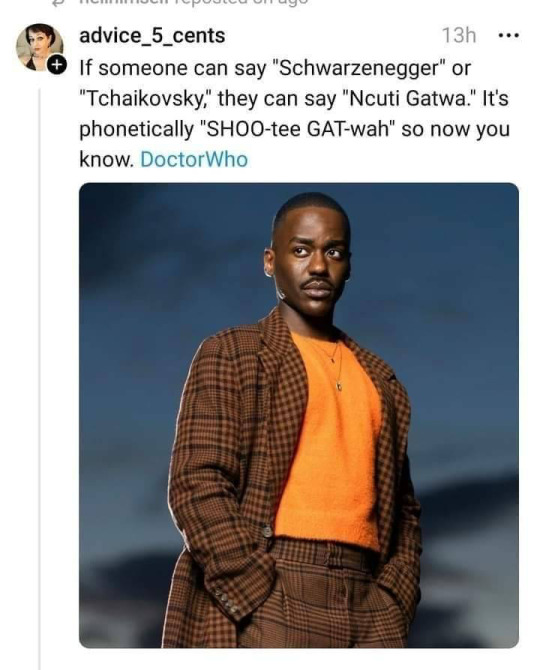
okay okay I know the point of this is “White people need to put as much effort into learning how to pronounce Black people’s names as they do foreign European names” and 100% I totally agree, absolutely good point
but this tweet becomes hilarious in the context of this clip:
anyways, absolutely put effort into learning how people pronounce their names. just don’t feel bad if it takes you some time to get it right 😅
(also in case you didn’t watch the video it’s “N-SHOO-tee” not “SHOO-tee”)
#he’s an absolute gem I love him#easily becoming one of my favorite doctors#ncuti gatwa#dw#doctor who
83K notes
·
View notes
Text
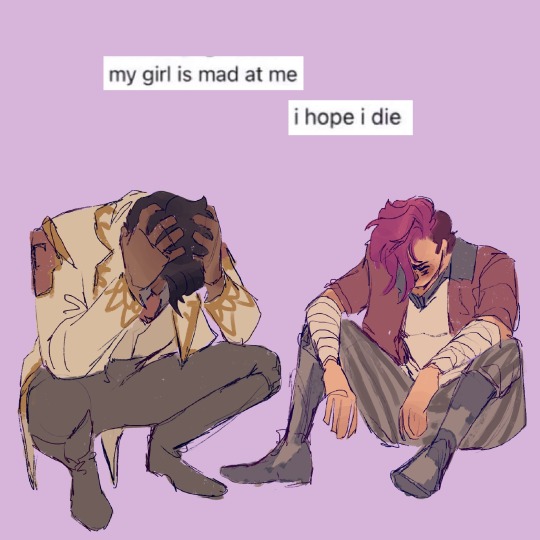
Wife lovers till they die
#Viktor’s pout when Jayce said no to ascending with him was all I needed to see.#or my fave bridge scene#the man folded immediately#vi loves cait sm like#do I even need to bring examples#act 2 s2 is literally the only proof I need#cait could be on this post too but#this duo is so silly to me#art#fanart#digital art#fan art#my art#arcane#arcane fanart#vi arcane#jayce talis#jayvik#caitvi#what the hell sure#meljay#love wins#book street#bookstreet
54K notes
·
View notes
Text

•the swan
(edit: thank you all so so much for 10K likes! ive never recieved this much love for an artpiece of mine on any platform before 🙏🏽.)
(edit: 20K! omg guys! i am so grateful! thanks for all the support.)
(edit: 25K?? i didn’t know there were 25K people who even knew about mouthwashing! this is so nice, and thank you all!!)
#art#fanart#gaming#daisuke mouthwashing#swansea mouthwashing#mouthwashing fanart#mouthwashing#mouthwashing game#he spent so much time trying to protect him#i love the swan symbolism in this game sm 😔
26K notes
·
View notes
Text

‘You were my new dream’ or however the fuck that scene went
#I will now proceed to sleep for a million years#I put so much effort into this I feel like I just ran a marathon oh my GOD#arcane#arcane spoilers#arcane season 2#my art#digital art#painting#digital painting#fanart#jayce talis#viktor arcane#artists on tumblr#art#jayvik#I actually can’t believe I was able to make this tbh#made viktors eyes shine for fun but also to make him look more like mel#gotta love those sweet sweet parallels
26K notes
·
View notes
Text
I’m sorry but I will truly never get over Ekko who lost his mentor and all his friends at a young age, then spent the rest of his childhood building a beautiful and strong community that helped get shimmer addicts off the streets and give them a new life that thrived off of trust, respect, and loyalty while slowly watching the girl he loves lose herself to her psyche and become an unhinged suicidal terrorist who he is unable to save despite repeated attempts at it. And THEN gets booted into an alternate reality where he learns he could have had EVERYTHING, the beautiful and thriving community, the education, his family, and the girl he loves and he heartbreakingly leaves it all behind because he knows he doesn’t belong there and he has to go back to save his people which he DOES multiple times at great risk despite knowing what overextending his z-drive could do only to end up completely alone in the end. The most selfless character in the entire series. That’s my boy savior.
#Ekko I love you so much#I wanted a happy ending for him so bad#FINE I’ll do it myself#arcane#arcane s2#arcane season 2#ekko#ekko arcane#timebomb
25K notes
·
View notes
Text


yeah so i had to draw that
#i doubt we’ll see any more young viktor but god i love him so#sabeldraws#arcane#arcane season 2#viktor#jayvik#fanart#artists on tumblr
25K notes
·
View notes
Text
Men use “I’m just a man” to cheat on their wives. Odysseus uses “I’m just a man” to kill, slay and torture people to get back to HIS wife. They are not the same.
#epic the musical#odysseus#odysseus of ithaca#jorge rivera herrans#hermes#calypso#he really said ‘I love my hot wife’#and we stan him for that
25K notes
·
View notes
Text

Can the guy at the bottom kill himself or something
#mouthwashing#jimmy mouthwashing#curly mouthwashing#love when people give curly eyelashes#die jimmy#god i hate him#anya pov#edti: cant believe i have to say this but im not saying curly is a good person in this post WHAT!
24K notes
·
View notes
Text
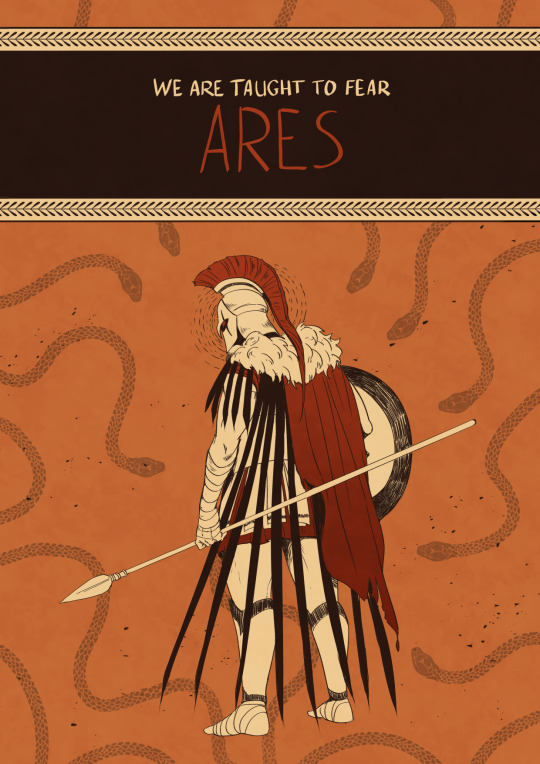
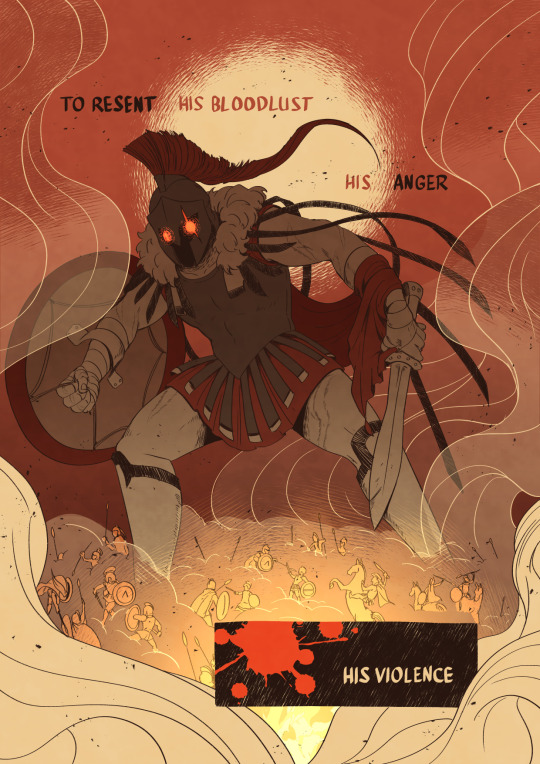
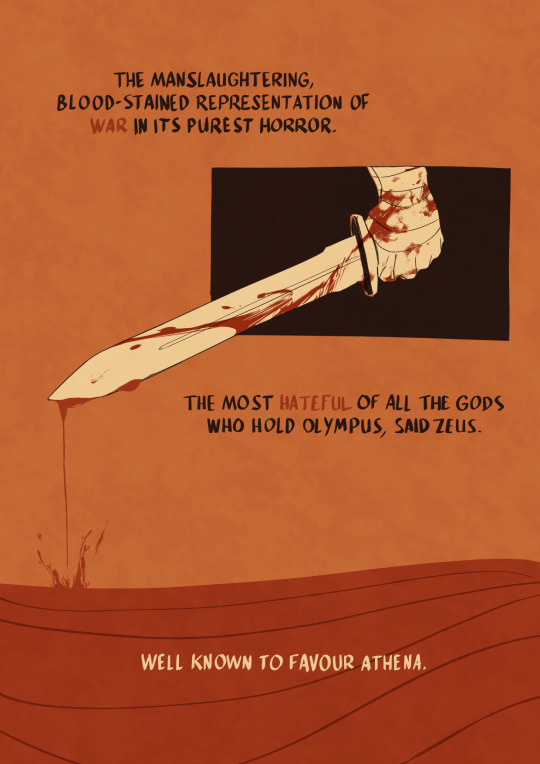
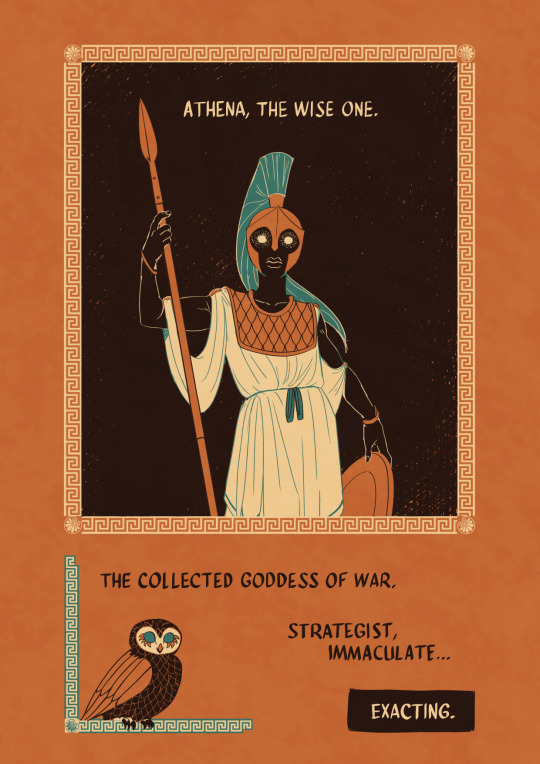
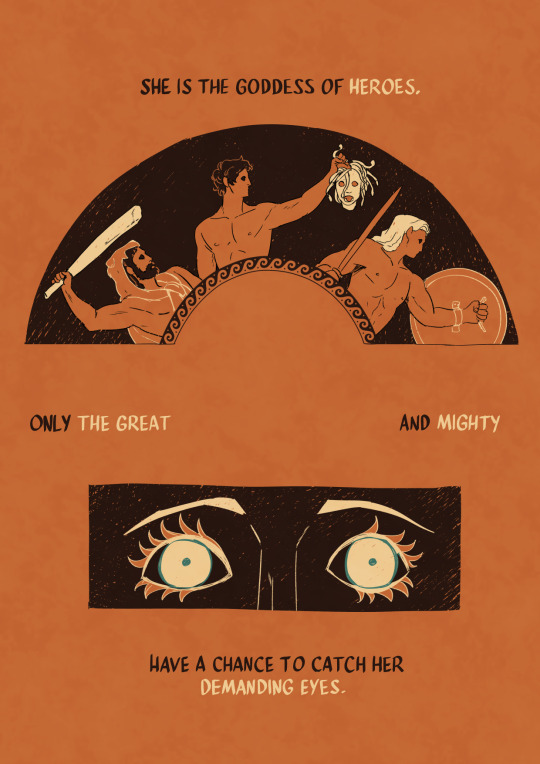
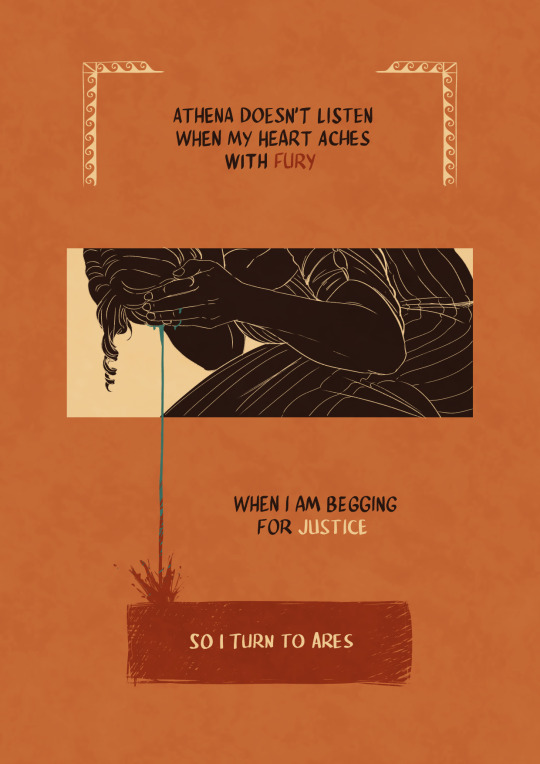
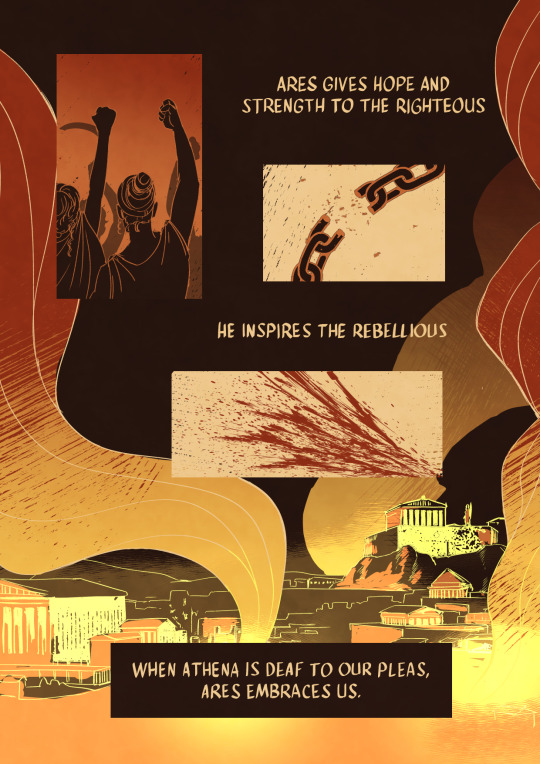
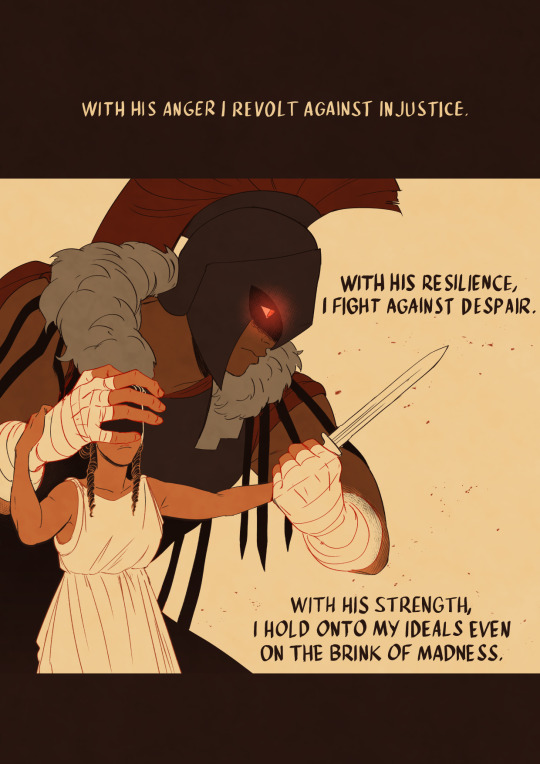
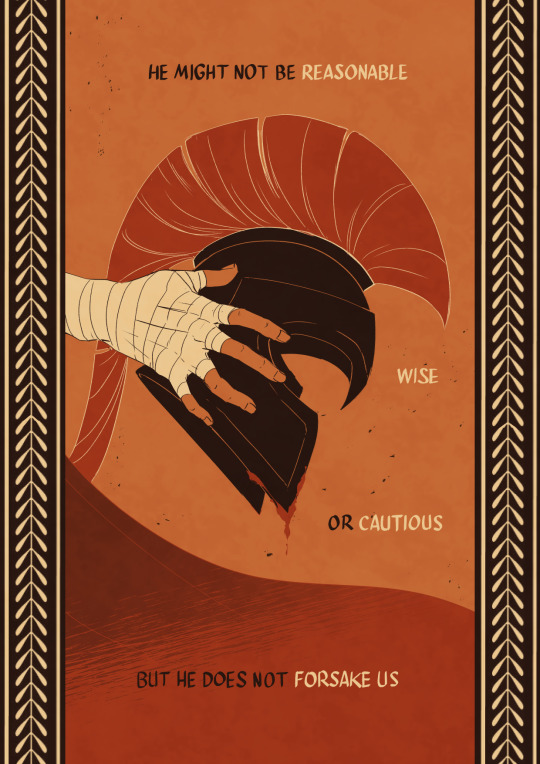
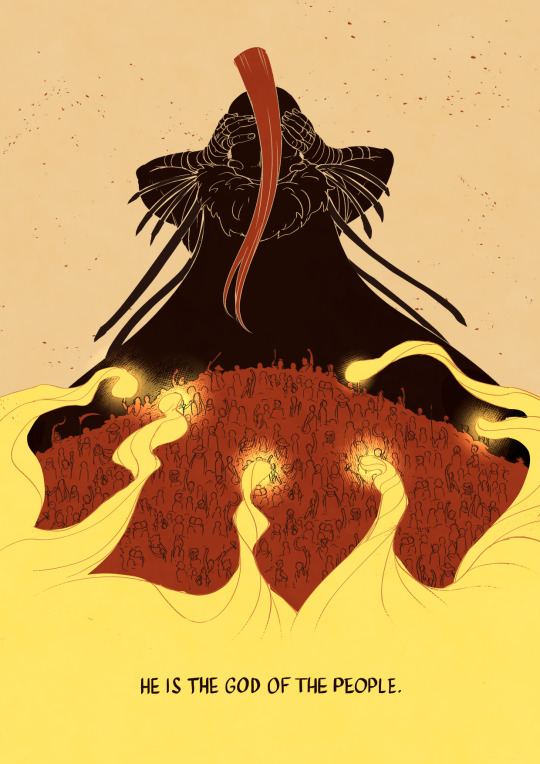
I turn to Ares.
Thanks to Tyler Miles Lockett who allowed me to draw inspiration from his ARES piece for page 2! Look at his etsy page it's SICK
⚔️ If you want to read some queer retelling of arturian legends have a look at my webtoon
#greek mythology#ares#athena#greek gods#dont get me wrong it aint athena slander but it sure is ares praise#on some level at least#man justly accused of bad things deserves some mid praise more at 11#thank you romi for helping me with words though i duly noted you insisted on ares not being cautious rather than him not being careful#romi be like “i want him to care” and honestly good you should say it#also EPIC led to this and i just..... i want to draw some animatics man i just need infinite time now#my long lost love for greek myths just will never stop coming and they dont stop coming and they dont stop coming#i want some vulture design in here for ares but not sure about this one#kochei doodles
96K notes
·
View notes
Text
First of all, it’s a really lucky thing it occurs to me now—I saw [Matt] the other day and we’re doing this movie together—very few people are lucky enough to spend their life in the same line of work with their best friend from when they were kids, manage to stay friends, not end up hating each other. Actually, be friends and love each other […] I mean, it was something that seemed really normal and that I took for granted because there we were: we were kids who— he was a bigger kid, for a brief period. I was 8, he was 10, he was a big kid, he played baseball, he was really cool, he had a bowl cut—those little feathered ones that we all wanted, of course—and he— And he was, you know, nice to me. And we were both interested in the same things. Just kids who grew up two blocks apart and both wanted to be actors—for whatever reason it is that makes you wanna do that thing—and hung out and then we’re in the same friend group and then sort of went off and did— “Oh, let's—” We’re just like dumb enough to think, “It’ll pan out for us! We’ll just go be actors! We’ll just go work!” And kind of believing in it. And then live together. But I think the reason why it wasn’t a thing—that sort of “competition” thing that you talk about—is because we did a lot of auditioning very early on. […] And always the thing was, we would get our little act together, and practice our scenes, and do our workshop—I mean, “nerdy” doesn’t even begin to describe it—but it really was a genuine thing, where we were like, “Look, I hope I get the part. But if I don’t, I really hope you do.” And for a while, we had this thing where we were like, “We’ll just split all our money!” […] I took for granted that he liked me, and rooted for me, and wanted me to succeed. We just didn't— We’re lucky enough not to have the friendship of that whole “It’s not enough that I succeed, all my friends have to fail” thing. And there are people I’ve wanted to fail! I can be just as petty and bitter as any other actor. But I loved him.
— Ben Affleck, in the SmartLess podcast (2 April 2023).
#ben affleck#matt damon#matt & ben#on meeting each other#ben appreciating matt#'i love him'#'my best friend'#on friendship#2023#video#originals
7 notes
·
View notes
Text
"i wonder if we ever think of each other at the same time."
#wattpad#love#love quotes#lovers#i love him#enemies to lovers#relatable#relatable quotes#life#relationship#friendship#mental health#feelings#life quotes#daily quotes#thoughts#lines#literature#writing inspiration#writers on tumblr#qoutes#quotes#post on tumblr#beautiful words#quote
47K notes
·
View notes
Text
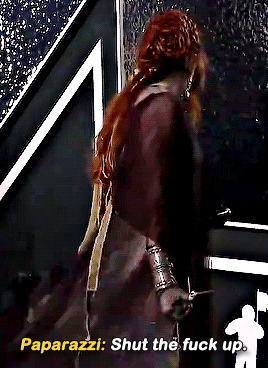
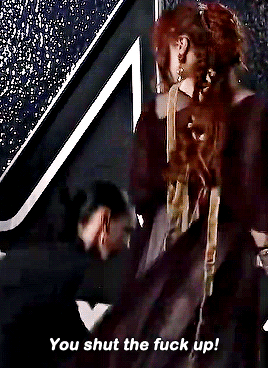
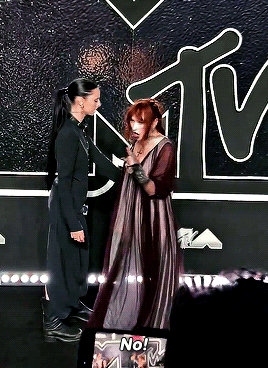
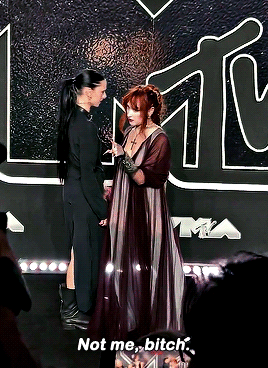
#you tell 'em girl
#chappell roan#chappellroanedit#vmas#chappellsource#userchappell#tusermiles#ughmerlin#userbru#tuserdee#alielook#dailywomen#femaledaily#ladiesblr#dailymusicqueens#dailymusicians#wonderfulwomendaily#femalepopculture#*gifs#1k#i love how she rightfully drags him and then immediately goes back to serving
24K notes
·
View notes
Text
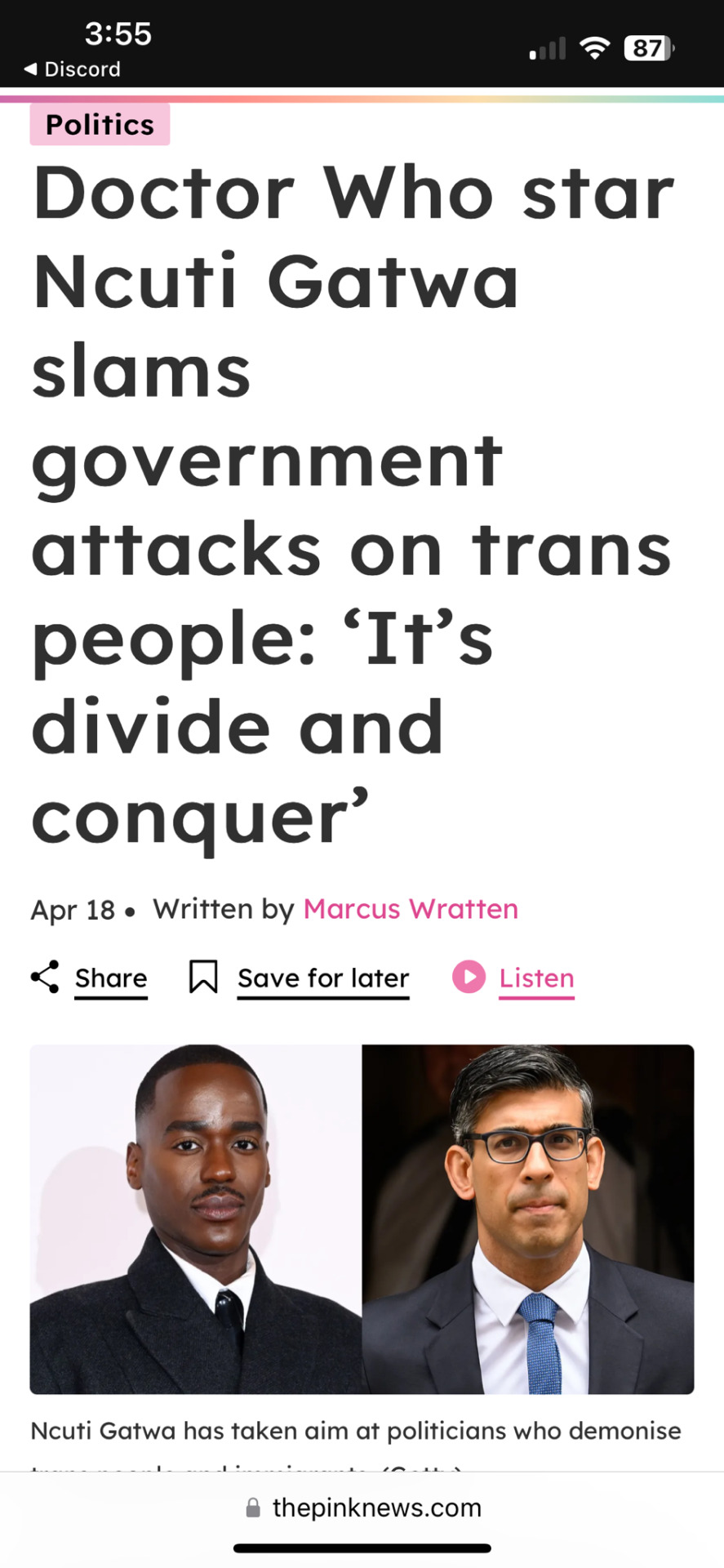
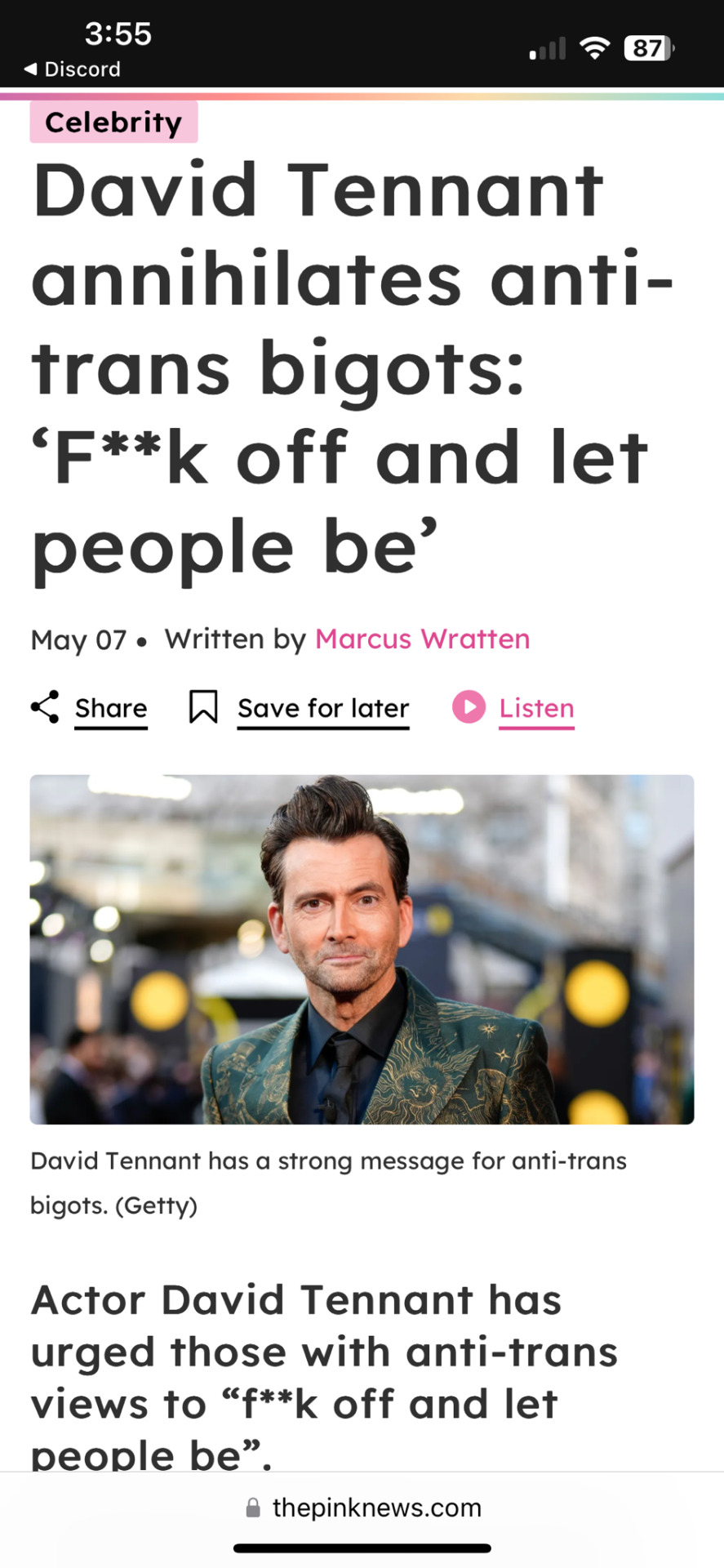
Happy pride month maybe I’ll start watching Doctor Who again
#also happy pride to Ncuti Gatwa specifically I love him#in everything I HAVE seen him in#doctor who#ncuti gatwa#he’s so good for the role too#david tennant
51K notes
·
View notes